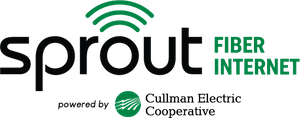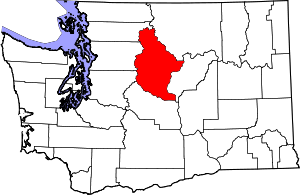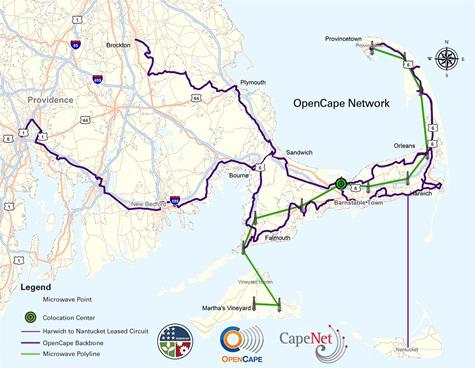
Fast, affordable Internet access for all.

As digital inclusion practitioners and broadband-for-all advocates continue to push Congress to save the Affordable Connectivity Program (ACP), 22.5 million Americans now enrolled in the program are weeks away from being officially notified of its pending termination as ACP funds are on track to be depleted by the end of April.
The looming demise of the ACP – which provides income-eligible households with a $30 monthly voucher to pay for pricey Internet service bills ($75/month for Tribal citizens living on reservations) – comes at a crucial moment in the rollout of the “Internet For All” initiative. All 56 States and U.S. territories are poised to receive nearly $45 billion in broadband expansion funds from the bipartisan infrastructure law over the next year.
Separate from the BEAD program and Digital Equity Act funding, the bipartisan infrastructure law also established the ACP with a $14.2 billion allocation. At current enrollment rates, the program disburses about $650 million per month to Internet service providers (ISPs).
A looming new bill by Republican Kentucky State Senator Gex Williams could undermine decades of broadband progress made in the state’s capital city by a popular locally-owned utility, Frankfort Plant Board (FPB).
Home to 28,000 Kentuckians, local residents and utility officials in Frankfort are incensed at the bill, which they believe will unnecessarily result in higher rates, fewer jobs, and less broadband competition overall.
Williams is circulating a bill in the Kentucky state legislature that, if passed, would force FPB to sell its broadband division to a private-sector company and subject it to more stringent oversight requirements. In guest editorials circulated in the local press, Williams insists his goal is to “rein in” the FPB, which he deems part of a “runaway” government that lacks accountability.
But there’s no evidence for Williams’ allegations of limited accountability, and locals and activists alike believe that the legislator is simply running interference for regional broadband monopolies upset by the added competition created by the popular, publicly-owned utility.
Another Community-Owned Solution Addressing Market Failure
Like many local U.S. communities, Frankfort sees a notable dearth of meaningful broadband competition, resulting in patchy broadband coverage, slow speeds, high prices, and abysmal customer service. Enter the Frankfort Plant Board, which has been deploying affordable fiber access across the community under the NEXTBAND brand.
UTOPIA Fiber has completed its fourth major broadband deployment of 2023, with the finished construction of a $23.5 million citywide fiber-to-the-home (FTTH) build in Syracuse, Utah (est. pop. 33,000).
Network construction began November 30, 2021, and its first customer was connected on September 12, 2023. UTOPIA officials say the new Syracuse network passes 12,324 residential addresses, and has already reached a nearly 16% subscriber take rate in the city.
UTOPIA, shorthand for Utah Telecommunication Open Infrastructure Agency, is a collaboration between 11 Utah cities that joined together in 2004 to build, deploy and operate a fiber network that reaches every last home and business in its territory. Since 2009, UTOPIA’s expansion has been funded entirely by subscriber revenues.
Despite some early lawsuits by regional monopolies like Qwest (now Centurylink/Lumen) designed to kill the project before it could get a foothold, UTOPIA has not only survived but thrived, and its success has been transformative for large swaths of the Beehive State.
Syracuse – like many U.S. communities – had been consistently underserved by a duopoly of Comcast and Centurylink (Lumen). That lack of competition consistently results in sluggish, expensive, spotty broadband service, and substandard customer service. Now, locals have access to a variety of far more affordable options thanks to a menu of UTOPIA partner ISPs.
Knoxville, Tennessee's Knoxville Utility Board (KUB) says it has completed the first phase of its ambitious broadband deployment, bringing affordable fiber access to more than 50,000 premises in this city of 192,000 – many for the very first time.
When we last wrote about KUB back in 2021, the city's utility had just received approval to build what will eventually be the biggest municipal broadband network in the U.S.
All told, the $702 million project, known as KUB Fiber, aims to deliver affordable fiber to 210,000 households across KUB’s 688-square-mile service area, taking between seven and ten years to complete.
KUB says that the first phase of fiber deployment involved the installation of more than 1,100 miles of fiber infrastructure. Upgraded users have the option of three tiers of service: symmetrical gigabit per second (Gbps) service for $65 a month; symmetrical 2.5 Gbps service for $150 a month; and symmetrical 10 Gbps service for $300 a month.
KUB’s service tiers do not come with usage caps or long-term contracts. Unlike many municipal operations, KUB is also offering locals the option of bundling television service.
KUB was driven to expand access after more than a decade of local frustration at the slow speeds, high prices, and spotty coverage caused by a notable lack of competition between regional telecom monopolies, AT&T and Comcast (Xfinity). Both companies have attempted to lock down customers via long-term contracts ahead of the network’s completion.
As one local resident said:
“Comcast thanked me for being a customer for 23 years, but it's not because I've had the option to go anywhere else. They have had 23 years to fix these problems and they haven't."
Cullman, Alabama-based Cullman Electric Cooperative says it is launching a new phase of fiber deployment after receiving a $7 million grant to bring affordable fiber access to long-neglected Cullman and Winston counties.
The financing was made possible by the Alabama Broadband Accessibility Fund (ABAF), funded by the 2021 American Rescue Plan Act (ARPA). The state has already dedicated more than $82 million in funding for Alabama broadband deployments, bringing broadband access to 72,000 currently unserved residents.

Cullman’s $7 million portion will bring affordable fiber access to 1,300 families. Known as Sprout Fiber Internet, Cullman currently offers residential customers symmetrical 300 Mbps (megabit per second) service for $60 a month; symmetrical 1 Gbps (gigabit per second) service for $80 a month, and symmetrical 2 Gbps service for $120 a month.
That’s significantly faster and cheaper service than is currently offered by any of the dominant private telecom monopolies in Cullman (predominantly AT&T or Charter/Spectrum), without usage caps, hidden fees, or long-term contracts.
A plan in Jamestown, New York to deploy affordable fiber to every last city resident has received welcome support from state leaders, even though deployment details remain murky and network construction remains well over the horizon.
In 2021, Jamestown officials told ILSR they were working with Entrypoint Networks on a $25 million fiber network for the city of 28,000. The city hopes to deliver fiber in conjunction with the Jamestown Board of Public Utilities, leaning heavily on the federal Affordable Connectivity Program (ACP) to ensure low cost access to marginalized and low income communities.

The city’s plans got a needed attention boost last month when Empire State Development – tasked with boosting economic development across New York State – gave a nod to Jamestown’s efforts in the organization’s five-year development plan.
The plan, among other things, will shape how the state utilizes $664 million in federal subsidies made possible by the Broadband Equity Access and Deployment (BEAD) Program and the 2021 infrastructure bill. While Jamestown may qualify for BEAD funding, how much the city’s project could receive remains undetermined.
First Electric Cooperative – and its broadband subsidiary Connect2First – are making major inroads on their quest to deliver affordable fiber Internet service to long-neglected portions of Arkansas.
Buoyed by an historic stretch of federal funding, the cooperative says it’s on target to deliver up to 2.5 gigabit per second service to 72,000 locations by the end of 2024.
Connect2First officials say they’ve deployed 4,371 miles of fiber across 18 counties in the southeastern part of the state, just outside of the state capital in Little Rock, delivering speeds significantly higher than seen in more urban, populous areas. The resulting service is also a notable step up in speed from regional monopolies like AT&T and Optimum, which see little market incentive to upgrade lagging networks or compete on price.
Connect2First residential customers have the choice of three tiers of service: a symmetrical 200 megabit per second (Mbps) connection for $60 a month; a symmetrical 700 Mbps connection for $60 a month; or a symmetrical gigabit per second (Gbps) service tier for $100 a month. The company’s tiers feature no service caps, hidden fees, or long term contracts.

First Electric Cooperative, headquartered in Jacksonville, Arkansas, began in 1938 with just 3 employees and 150 members. Now with 94,000 electricity customers, it’s one of the largest cooperatives in the country, and the second biggest cooperative in the state of Arkansas.
Officials in Chelan County, Washington say they are making meaningful progress on its decades-old plan to deliver affordable broadband to all 79,000 county residents. After securing financing for its latest planned fiber expansion, the Chelan County Public Utility District (PUD) says it’s exploring options to help finish the job of equitable, affordable, full-county deployment.
Chelan County PUD was formed in 1936 by local voters frustrated by costly, spotty access to electricity. Like so many utilities, cooperatives, and communities, those rural electrification efforts have helped inform the quest for ubiquitous, affordable broadband access almost a century later.
In 2001, the Chelan PUD began building a county-wide wholesale fiber network at a time when PUDs in the state were restricted from offering retail telecommunications services. (Those state statutes were rolled back by state lawmakers in May 2021). The network currently covers roughly 81% of the county, reaching about 39,000 subscribers; 21,000 of which get broadband service through one of the county’s five local ISP partners.

An ongoing network expansion plan aims to extend the reach of the county’s fiber network to roughly 42,000 homes and businesses. Those efforts are currently being funded by some of the $14.9 million in American Rescue Plan Act (ARPA) funds received by the county, as well as the Chelan PUD's Public Power Benefit Program, financed by surplus wholesale power sales.
Both the Sagamore Bridge and Railroad Bridge that span opposite ends of the Cape Cod Canal carry the kind of traffic that terrifies Comcast and Verizon.
The 576 count fiber-optic strand strung across the Railroad Bridge in Buzzards Bay – and the 864 strand that crosses the Sagamore Bridge – belongs to OpenCape, an open-access “middle mile” network ushering the gold-standard of Internet connectivity into parts of each of the Cape’s 15 towns.
It’s an extension of OpenCape’s fiber network, lashed to utility poles in dozens of communities across southeastern Massachusetts, all of which connect the region to the nation’s Internet backbone/long haul network.
Middle mile networks are a key part of the Internet’s connective tissue that dramatically lowers the cost for Internet service providers (ISPs) to deploy “last mile” connections to individual homes and businesses.
Thanks to a federal grant courtesy of the American Recovery and ReInvestment Act, the nonprofit fiber network was established in 2009 and since then has been providing Internet connectivity to most of the region’s anchor institutions – hospitals, public safety facilities, numerous libraries, schools, banks, and dozens of other enterprise clients with big data needs such as the Marine Biological Laboratory and the Woods Hole Oceanographic Institution in Falmouth.

Over the past several years OpenCape has deployed fiber deeper into the region, expanding the network from an initial 350 miles to 650 miles of fiber today, serving a growing number of Main Street businesses across the Cape.
Fort Worth, Texas, (est pop. 956,000) has struck a $7.5 million, 34-year contract with Dallas-based Sprocket Networks to construct a new 300-mile fiber optic backbone to shore up city municipal communications needs, expand affordable access to marginalized neighborhoods, and boost local economic development.
City officials say construction crews are expected to begin work sometime in the next three to six months, with the full network construction expected to cost $65 million and take three years to complete.
Services will first be made available to nine target neighborhoods (including Las Vegas Trail, Como, Marine Creek, Stop Six, Rosemont and Ash Crescent) on a rolling basis. Sprocket Networks will own the finished fiber network.
“This partnership was entered into with Sprocket with the hopes of eventually getting to universal service in Fort Worth,” Fort Worth IT Solutions director Kevin Gunn told ILSR in a phone interview. “We want the gold standard fiber optic connectivity: 100 megabits symmetric and up available at every doorstep, whether that's a senior family, multifamily or commercial.”
Gunn told ILSR that the city’s initial payment of $7.5 million to Sprocket consists of $4.5 million in American Rescue Plan Act (ARPA) funds, and $3 million from the North Central Texas Council Of Governments, which has allocated some of its transportation budget to broadband improvements the agency will benefit from.
In response to COVID era broadband inequities, the city of Fort Worth last year expanded free Wi-Fi access to 40,000 largely underserved city residents. Gunn indicated that those connections will be slowly phased out as the city transitions to fiber.